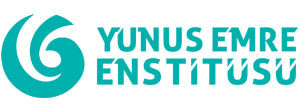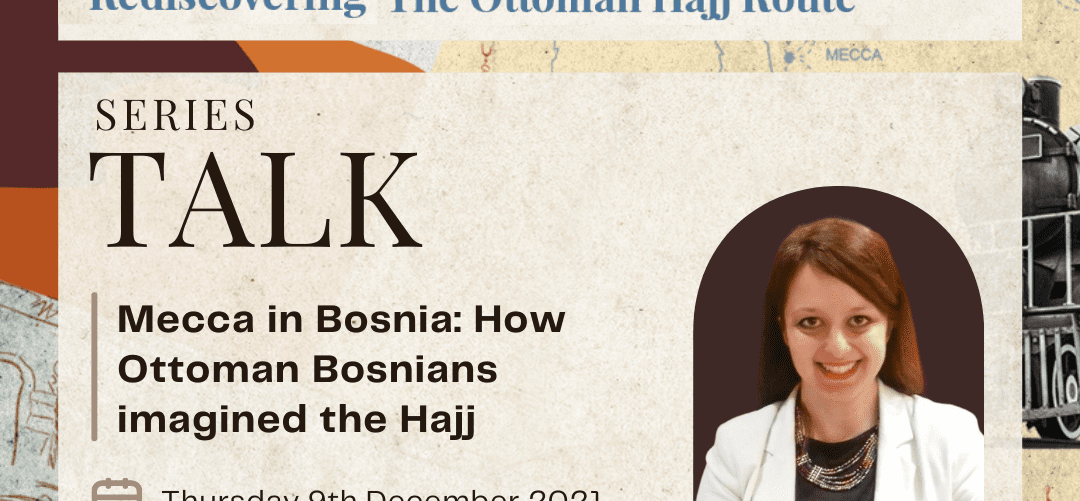“Mecca in Bosnia: How Ottoman Bosnians imagined the Hajj” with Dr Dženita Karić as part of The Sacred Journey: Rediscovering the Ottoman Hajj Route Exhibition.
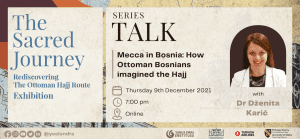
The Hajj is one of the five pillars of Islam central to Muslim belief and is a deeply personal journey. Taking place for centuries, this monumental journey has left physical and spiritual traces across the world and continues to be experienced by people from all corners of the globe today. While remaining a story of unchanging devotion and sacred duty, this historic journey is also one of transformation. Spanning regions, rulers, and time, this pilgrimage evolved from an arduous journey that took months to a quicker and more comfortable journey with the development of modern means of travel.
In this vein, Yunus Emre Institute in London is hosting Dr Dženita Karić on Thursday 9nd December, 7 pm (UK time) online for its second seminar of its “The Sacred Journey: Rediscovering the Ottoman Hajj Route” exhibition and talk series. Dr Karić will be discussing the experiences of Bosnian Muslims on the Hajj in the early modern Ottoman period.
Abstract:
The history of Bosnian Hajj goes back to the early years of Ottoman rule in the region. During the several centuries of Ottoman rule, Bosnian Muslims not only went on Hajj in significant numbers, but also wrote about their religious experiences in the hope to inspire others and prolonging the spiritual effect of the pilgrimage. They wrote in Ottoman Turkish and Arabic, and in a variety of genres, addressing both the local and the imperial audiences. This talk focuses on Bosnian Hajj writings in three dimensions: through the focus on the writings of Ali-dede al-Busnawi, we will see how Bosnian Ottoman scholars tried to promote the Ottoman dynasty and their patronage of the pilgrimage; turning to the 17th century sermons, we will see how Hajj was understood and advised by the Ottoman Bosnian scholars; and finally, through several travelogues from 17th and 18th centuries, we will see how common Ottoman Bosnians experienced and felt about the pilgrimage.
Guest Speaker:
Dr Dženita Karić
Date:
Thursday 9th December 2021
Time:
19:00 pm (BST)
Online Webinar via ZOOM
Admission is FREE but registration*** is ESSENTIAL via Eventbrite.
About the speaker:
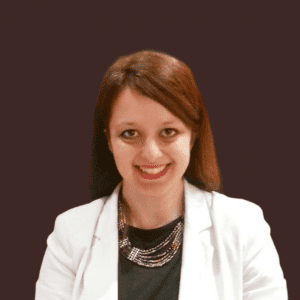 Dr Dženita Karić is a senior researcher and the chair for Islamic History of Ideas in the Post-Classical Period 1200-1800 at the Humboldt University of Berlin. Dr Karić’s research interests include Islamic intellectual history, Hajj and ritual, Hadith, Islam in the Balkans and Gender. She was previously a teaching assistant at the QMUL, University of London, a researcher and at the Oriental Institute in Sarajevo and a visiting researcher at the Şehir University, Istanbul. Dr Karić’ attained her PhD at SOAS, the University of London following a Masters in Literary historical studies, University of Sarajevo, Faculty of Philosophy, Department of Oriental Philology.
Dr Dženita Karić is a senior researcher and the chair for Islamic History of Ideas in the Post-Classical Period 1200-1800 at the Humboldt University of Berlin. Dr Karić’s research interests include Islamic intellectual history, Hajj and ritual, Hadith, Islam in the Balkans and Gender. She was previously a teaching assistant at the QMUL, University of London, a researcher and at the Oriental Institute in Sarajevo and a visiting researcher at the Şehir University, Istanbul. Dr Karić’ attained her PhD at SOAS, the University of London following a Masters in Literary historical studies, University of Sarajevo, Faculty of Philosophy, Department of Oriental Philology.
The exhibition can be visited during the hours below.
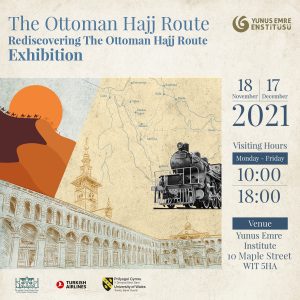 Exhibition Dates: 18h November – 17th December 2021
Exhibition Dates: 18h November – 17th December 2021
Visiting Times: Mondays – Fridays, 10 am – 6 pm
Venue: Yunus Emre Enstitüsü – London, 10 Maple Street, W1T 5HA
Admission: Free
For more information on these talks and to sign up, please visit the Yunus Emre Enstitüsü – London website, https://yeelondon.org.uk/ or email the Institute via londra@yee.org.tr.
This exhibition is organized by Yunus Emre Enstitüsü – London in collaboration with the University of Wales Trinity St David, London Central Mosque and Turkish Airlines
